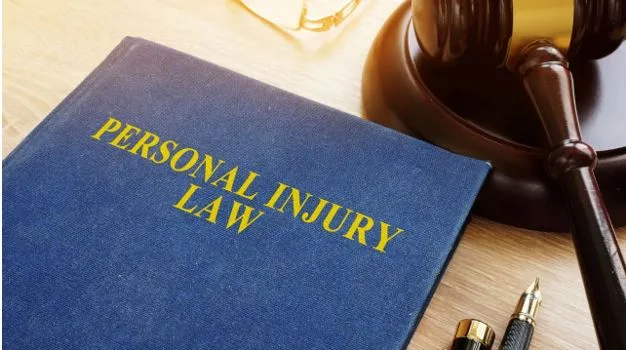What You Need to Know Before Hiring a Personal Injury Lawyer in Texas
Getting hurt because of someone else’s carelessness can turn your whole life upside down. One minute you’re going about your day, and the next you’re dealing with medical bills, missing work, and wondering how you’ll pay for everything. If this sounds familiar, you’re probably thinking about getting legal help. Finding the right Texas Personal Injury Lawyer can make all the difference in getting fair compensation for what you’ve been through.
Why Texas Personal Injury Cases Are Different
Texas has its own set of rules when it comes to injury cases. The state follows what’s called “modified comparative negligence.” This means if you’re found to be more than 50% at fault for your accident, you can’t recover any damages at all. That’s a pretty big deal. Even if you’re partially at fault, your compensation gets reduced by your percentage of blame. This is exactly why having someone who knows Texas law inside and out matters so much.
The Lone Star State also has specific time limits for filing injury claims. Generally, you have two years from the date of your injury to file a lawsuit. Miss that deadline, and your case is probably done. There are some exceptions, but you don’t want to risk it. Time flies when you’re recovering from injuries, so getting a Texas Personal Injury Lawyer involved early keeps your options open.
Common Types of Personal Injury Cases in Texas
Car accidents top the list of injury cases in Texas. With sprawling highways and busy city streets, crashes happen every single day. Whether it’s a fender bender or a serious collision, dealing with insurance companies gets complicated fast. They’ll often try to settle quickly for less than you deserve.
Truck accidents are particularly devastating. Those 18-wheelers can cause massive damage, and these cases involve different regulations than regular car accidents. Federal trucking laws come into play, and there might be multiple parties responsible, from the driver to the trucking company to the manufacturer.
Slip and fall accidents happen more than you’d think. Grocery stores, restaurants, apartment complexes, and businesses all have a duty to keep their premises safe. When they don’t, and someone gets hurt, they can be held responsible. These cases require proving the property owner knew or should have known about the dangerous condition.
Workplace injuries cover a wide range of situations. While workers’ compensation usually handles most job-related injuries, some cases go beyond that system. If a third party caused your workplace injury, or if your employer doesn’t carry workers’ comp insurance, you might have a personal injury claim.
Medical malpractice is when healthcare providers fail to meet the standard of care and a patient gets hurt as a result. These cases are incredibly complex and require expert testimony. Texas has specific requirements for filing medical malpractice claims that don’t apply to other injury cases.
What Makes a Good Personal Injury Lawyer
Experience matters, plain and simple. You want someone who’s handled cases like yours before and knows what to expect. A Texas Personal Injury Lawyer who’s been practicing for years has relationships with expert witnesses, understands how local courts work, and can anticipate what the other side will do.
Communication is huge. Your lawyer should explain things in terms you actually understand, not legal jargon that leaves you confused. They should return your calls and emails within a reasonable time and keep you updated on what’s happening with your case. You’re already stressed from your injury—you shouldn’t have to stress about reaching your own lawyer.
Resources make a difference too. Investigating an accident, gathering evidence, hiring experts, and building a strong case takes money upfront. Established law firms have the resources to invest in your case without cutting corners. They can bring in accident reconstruction specialists, medical experts, and economists to calculate your true damages.
Trial experience cannot be overlooked. Most cases settle out of court, but insurance companies know which lawyers are willing and able to go to trial. If they think your lawyer won’t actually take the case to court, they have less incentive to make a fair offer. A Texas Personal Injury Lawyer with a track record of courtroom success carries more negotiating power.
How Personal Injury Claims Actually Work
The process usually starts with a free consultation. You’ll meet with a lawyer, explain what happened, and they’ll tell you if you have a case. If they take your case, most work on contingency, meaning they only get paid if you win. Their fee comes as a percentage of your settlement or verdict, typically around 33% to 40%.
Investigation comes next. Your lawyer will gather evidence like accident reports, medical records, witness statements, photos, and video footage. They might visit the accident scene or consult with experts. Building a solid case takes time and attention to detail.
Then there’s treatment and documentation. You need to follow your doctor’s orders and keep going to appointments. Your medical records become crucial evidence. They show the extent of your injuries, the treatment you needed, and how the accident affected your life.
Negotiation happens once your lawyer has built your case. They’ll send a demand letter to the insurance company explaining what happened, your injuries, and what you’re owed. The insurance company will usually respond with a lower offer, and the back-and-forth begins. A skilled Texas Personal Injury Lawyer knows how to negotiate effectively and won’t let insurers take advantage of you.
If negotiations fail, filing a lawsuit becomes necessary. This doesn’t mean you’re definitely going to trial—many cases still settle after a lawsuit is filed. But it shows you’re serious and moves the case forward through the court system.
What Your Case Might Be Worth
Every case is different, but compensation typically covers medical expenses (both current and future), lost wages from missing work, reduced earning capacity if you can’t return to your old job, property damage, and pain and suffering. In some cases involving extreme negligence, punitive damages might apply too.
Insurance companies will try to minimize what they pay. They might claim your injuries aren’t that serious, that you’re exaggerating your pain, or that you were partly at fault. Having a Texas Personal Injury Lawyer on your side levels the playing field and protects your rights.
Taking the First Step
If you’ve been injured, don’t wait to get help. Evidence disappears, witnesses forget details, and those legal deadlines keep ticking. Most lawyers offer free consultations, so you have nothing to lose by talking to one. They can explain your options, answer your questions, and help you make informed decisions about your future.
Getting hurt is hard enough. Getting fair compensation shouldn’t be a battle you fight alone.






